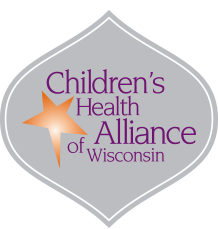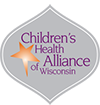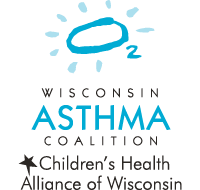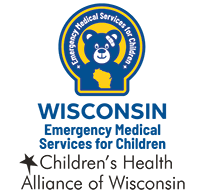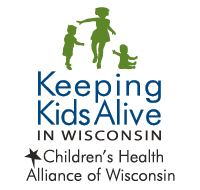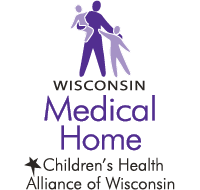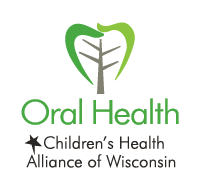Lead Poisoning Prevention
Lead Poisoning Prevention
Our lead poisoning prevention work involves collaboration with local partners to provide education, resources and care to children with lead exposure. Lead poisoning and asthma are both caused by environmental factors and are often prevalent in the same populations. Creating healthy environments is vital to creating healthy communities.

Visit preventlead.org, Milwaukee’s new source for free materials to empower the public in preventing lead poisoning. Join us in promoting #LEADucation!
Clinical and Community Solutions to Lead-Free Children
Environmental lead disproportionately impacts vulnerable groups, including children living in low-income areas and children of certain ethnic and racial groups. In Milwaukee, the highest lead levels are contained in old housing stock. To address this issue, Advancing a Healthier Wisconsin is funding a collaborative lead prevention project with the Medical College of Wisconsin, Children’s Wisconsin, Children’s Health Alliance of Wisconsin, and the Social Development Commission.
The project’s goal is to increase the connectedness between the clinical and community responses following a positive lead test. Increased connectedness and communication will help mitigate ongoing lead exposures and decrease lead poisoning in Milwaukee. The project is currently connecting with individuals and groups with concerns about environmental lead, including parents and community leaders, community-based organizations, clinicians, the local and state health department, coalitions, and the city housing department.
View project webinars to learn more about lead in Milwaukee and ongoing work of the partnership:
Frequently Asked Questions
Lead Poisoning Prevention Resources

CDC Childhood Lead Poisoning Prevention Program (CLPPP)
The goal of this program is to prevent childhood lead exposure before any harm occurs. Through CLPPP, CDC supports state and local public health departments with funds for surveillance and prevention of lead exposure.
City of Milwaukee Health Department Lead Programs
The Home Environmental Health Division (HEH) of the City of Milwaukee Health Department consists of four complimentary programs that together aim to keep children and families healthy and safe: Lead Hazard Reduction, Lead Surveillance & Response, Healthy Homes, and Drinking Water Safety.
Coalition on Lead Emergency (COLE)
COLE is organizing, advocating, and educating Milwaukee residents to create a lead safe city.
Community Water Services (CWS)
CWS is a multi-disciplinary team in Milwaukee that is testing a systematic approach to attain safe drinking water from the tap.
Developmental Screening Resources
Developmental Screening helps identify children with delays (a common symptom of lead poisoning) and get them the resources they need. The Family Resources on this page can be used to learn about developmental milestones and to share information with your child’s doctor.
Wisconsin Department of Health Services (DHS) Lead-Safe Wisconsin
Lead-Safe Wisconsin provides information, resources and tools to prevent lead poisoning and protect kids by making sure the homes they live and play in are free from lead dust.
Milwaukee Health Department (MHD) Drinking Water Filter Program
The City of MHD offers free drinking water filter starter kits as part of a free Lead Safe Kit if you meet the eligibility criteria.
Prevent Lead Poisoning Milwaukee
Prevent Lead Poisoning Milwaukee is a citywide initiative focused on providing free resources to empower the public in preventing lead poisoning. The mission is to raise awareness and equip Milwaukee with tools to build a safer and healthier community.
Social Development Commission (SDC) Lead Safe Homes Program
SDC’s Lead Safe Homes Program protects children and families from the hazards of lead-based paint in their homes. Eligible homeowners and owners of rental properties can receive assistance with eliminating lead-based paint hazards and creating lead-safe housing units.
Wisconsin Office of Children’s Mental Health Fact Sheet
This fact sheet is titled “Supporting Child Well-Being Through Preventing Childhood Lead Poisoning.” It provides information and action steps to take to prevent lead poisoning in our state.
Contact Our Staff
Carissa Hoium, MPH
Program Leader
Environmental Health
(414) 337-4569
choium@childrenswi.org
Sign Up for Our Newsletter
Your Dose of Oxygen
Receive monthly news about the Wisconsin Asthma Coalition, asthma education programs, research and grant opportunities.
The Wisconsin asthma initiative is funded in part by the Wisconsin Department of Health Services, Division of Public Health, through a U.S. Centers for Disease Control and Prevention Cooperative Agreement.
